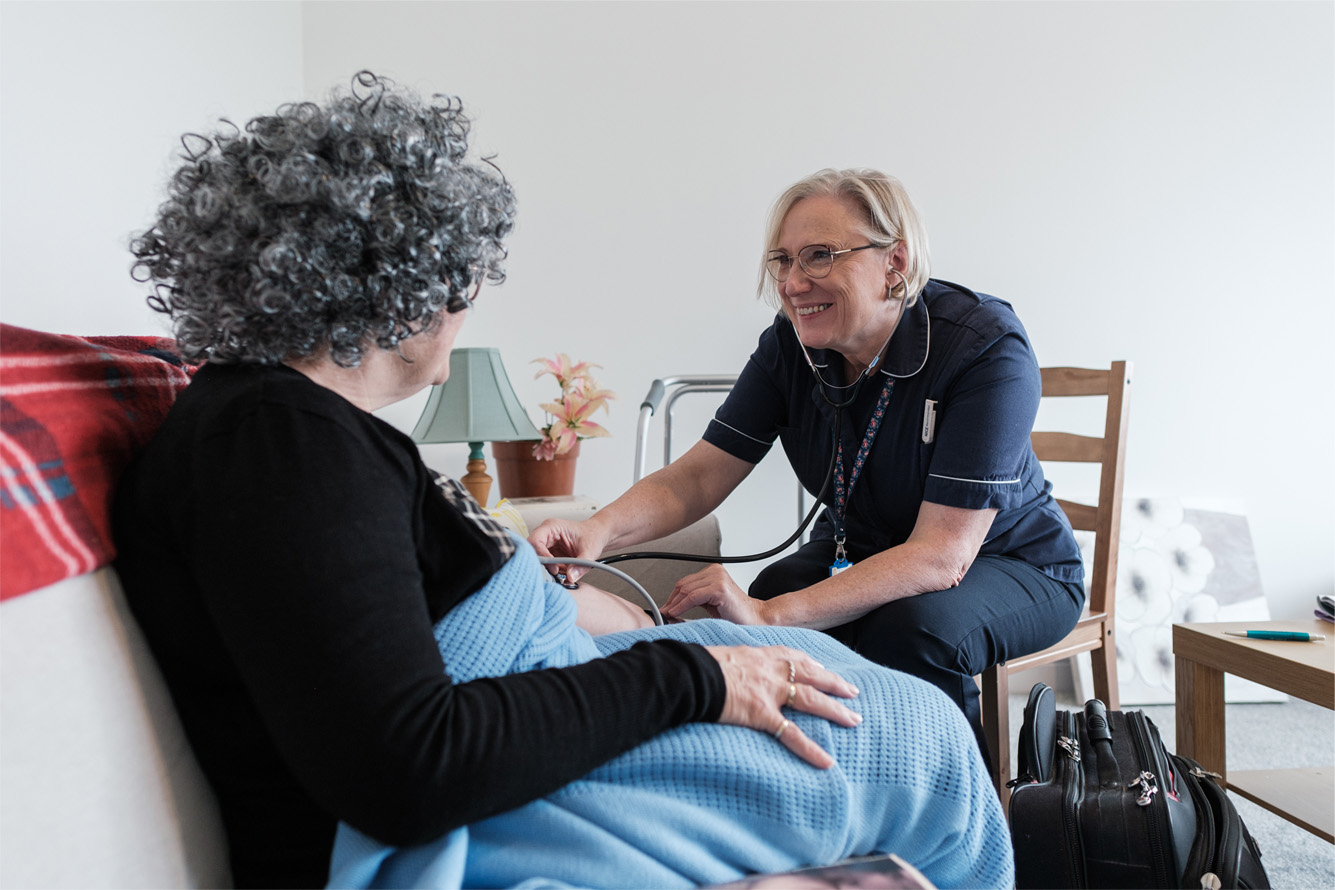(Short Course) The Enquiring Mind (CSP)

Course details
Year of entry
2025
Duration
8 weeks
Institution Code
G53
Location
Blended Learning
Why choose this course?
This course provides key information pertaining to research, methodology, epidemiology and critical analysis.
You will:
- Build academic and professional skill in independent, critical thinking at postgraduate level
- Refresh and advance your graduate ability to systematically search for and critically appraise research evidence
- Consider evidence for a range of relevant topics including research and publicly available epidemiological or other local population or service data to provide evidence for community practice and to consider gaps in knowledge and information.
- Stimulate the development of research-informed practice and develop a questioning mindset within the context of community nursing
- Apply numeracy, literacy, digital and technological skills in the analysis and presentation of data.
Key course features
- Designed in alignment with the NMC (2022 updated 2024) SPQ standards
- Provides a unique opportunity to undertake Level 7 study prior to embarking on a Level 7 study programme – building confidence in academic ability.
- Provides opportunity for progression to the SPQ programme as successful completion will enable the RPEL of credits into the SPQ programme following successful application and interview
- Delivery is for 8 consecutive weeks - Wednesday afternoon 13.00-16.00 hrs with a date for assessment provided from the onset
- We adopt a blended learning approach through a range of methodologies such as recorded lecturers, discussion forums, quizzes, case studies, group tasks, key readings, reflection and necessary learning activity will be available on the Moodle Virtual Learning Environment on a weekly basis.
- Funding can be sourced for this module for those working in a community setting within BCUHB and Powys LHB.
What you will study
The Enquiring Mind contains the following indicative syllabus:
- Literacy, numeracy, digital and technical skills
- Research questions, critical thinking and analysis
- Database searching
- Critical appraisal of research findings and local data
- Generating evidence for service improvement
- Identifying gaps in evidence
- Research design and methodology
- Reviewing literature
- Methods and tools for critiquing research
- Dissemination of evidence and publication
To capture this content the following subjects have been devised:
- An overview of research: What is research, what are the benefits, why we need to work within an evidence based framework
- Searching for research: This involves data base searching for relevant literature, documentation of searches in a summative table, and formatting references.
- Research design and methodology: An overview of research design and methods. Supporting the identification of quantitative, qualitative and mixed methods research
- Critiquing tools: Critiquing tools will be presented and you will be supported in utilising them to critique given research papers
- Exploring literature on given topics: An opportunity is provided for you to read and critically appraise literature provided
- Identification of gaps in research to improve service: You will use this aspect to consider a topic to critique for your summative assessment
- Dissemination and publication: Consider how to disseminate findings and the benefits of doing so. You will also learn how to publish research. You will bring in a printed A4 colour PP slide of your chosen topic and disseminate to your peers, giving an exciting opportunity to share newfound knowledge.
Entry requirements & applying
Applicants must be NMC registered nurses with current professional registration and either be employed within a community setting or wishing to apply for the District Nursing programme in the future.
To apply for this course, please contact postregadmissions@wrexham.ac.uk to request an application form.
Teaching & Assessment
WU adopt an Active Learning Framework (ALF) approach to teaching and learning. This means that students are actively involved in learning and teaching is provided in a variety of formats drawing on the greatest learning potential.
With this in mind, the teaching team adopt a blended learning approach through a range of methodologies such as recorded lecturers, discussion forums, quizzes, case studies, group tasks, key readings, reflection and necessary learning activity will be available on the Moodle Virtual Learning Environment on a weekly basis. There is an expected 20 hours of teaching and 80 hours of guided independent study.
- Formative assessment: Critique of a given research paper on a topical issue and assess its credibility and relevance to practice using a critical appraisal tool.
- Summative assessment: A 2000-word literature review focused on a current topical issue in community practice. You will gather and analyse relevant current contemporary evidence to develop a persuasive exploration of the issue.
Fees & funding
£500 at Level 7 (per 10 credits)
The Enquiring Mind is a 10 credit module.
Funding can be sourced for this module for those working in a community setting within BCUHB and Powys LHB.
Please note, short course prices are subject to review for 25/26 please contact shortcourses@wrexham.ac.uk if you have any queries.
Course Dates
Start date: TBC
Please contact postregadmissions@wrexham.ac.uk to request an application form.
